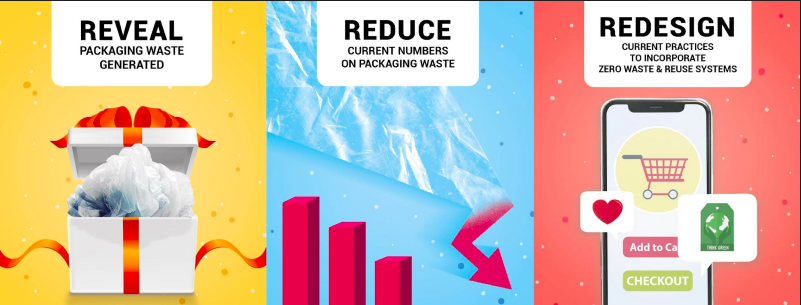It’s no surprise at this point that e-commerce has boomed exponentially this pandemic. We’ve all resorted to shopping online at least once (or once a week… don’t look at me like that), owing to a myriad of factors—convenience and the ever-changing community quarantine restrictions foremost among these.
But this constant need to shop safely online is contributing to an already-present environmental problem: plastic waste.
While there is no public data available yet on how much waste the rise in online sales has produced, we can only surmise that they have a direct correlation.
And although sustainable solutions for waste disposal have popped up, these may seem to be just a drop in the pond unless greater action is taken.
[READ: Don’t throw away online shopping plastic bags. This service collects and recycles them for you]
As such, Youth Strike 4 Climate Philippines, along with Greenpeace Philippines, and returnable and reusable packaging provider JuanBag are calling for accountability from large e-commerce platforms. Their petition, signed by 14,000 individuals as of this writing, asks the companies to “reveal data on waste estimates; reduce current waste production by introducing reduction targets; and redesign current systems by exploring reusable and returnable packaging and incentives for both buyers and sellers.”

In the online press conference hosted by Greenpeace Philippines today, it was noted that though the e-commerce companies have “publicized efforts to implement more ‘eco-friendly’ practices,” we have yet to see the effects and concrete action points of these pronouncements.
[READ: Here’s what these ‘sustainability’ terms meant before they became greenwashing buzzwords]
It’s important now for companies to take sustainability more seriously, instead of just treating it as a means for positive publicity (read: corporate social responsibility). According to the 2021 Sustainability Leaders survey by GlobeScan, experts now look at how sustainability is incorporated into the core of a company’s business model and strategy as a major factor in considering them as sustainability leaders.
[READ: Dear companies, recycling is not the answer to plastic pollution and you know it]
Online shopping *is* the new normal. If e-commerce companies claim to be truly committed to operating in a way that’s friendlier to the earth, it’s high time to work hand in hand with consumers and authorities to implement more transparent and more sustainable systems.